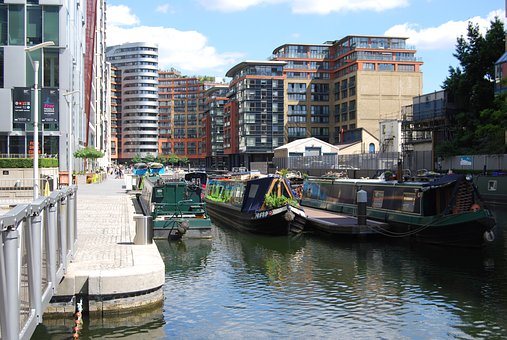Rents have fallen but living costs are up!
Guest post by John Davidson
It was recently announced that the cost of renting property in London had fallen by 1.2%, marking the market’s first decline since 2009. It’s far from being a seminal moment in the property market, however, as the costs facing tenants in the capital remain disproportionate to stagnating house prices.
A study from Flying Homes highlighted how house prices in London have fallen incrementally since the beginning of 2015, with even more affluent regions such as Kensington and Belgravia witnessing declines of 8.3% and 10.3% respectively.
So, while the sudden fall in rental prices may be good news for tenants, this does not reflect the true nature of the prevailing property market in the UK.
Are Floating Homes Providing an Affordable Solution?
The human spirit often remains indomitable at the worst of times and it seems some of London’s more forward-thinking residents have embodied this as the cost of renting remains high.
Take Sophie Dundovic and Ollie Spragg, friends and entrepreneurs who currently rent a two-bedroom boat in Hackney. This costs them an affordable £700 per month, which is in-line with the average price of renting similarly-sized properties outside of the capital. In contrast, a standard two-bedroom flat in Hackney currently costs between £1,500 and £2,000 each month, more than double the cost of a typical houseboat.
“We’ve lived in Notting Hill, Little Venice and Regent’s Canal; it’s been an incredible way to live in some of the most exclusive areas,” Ms Dundovic told the Telegraph, who along with Spragg has been living on boats for the past eight months while developing new entrepreneurial ventures. The pair highlight this as the perfect way to live in a nice neighbourhood while saving money and benefiting from the opportunities that exist in the capital.
These two city dwellers are not alone in their endeavours, with some even suggesting that floating homes and houseboats have created a new rung on Britain’s increasingly restrictive property ladder. The numbers certainly back this up, with London waterways welcoming a 50% increase in the number of active vessels over the past five years. The number of people living in houseboats across the UK also rose by 9% last year, as prices continue to spiral outside of the capital.
Is This a Viable Way of Beating the Rental Blues?
While it would be easy to dismiss this as a fad, it should be remembered that those with a foxed mooring can set up home almost anywhere along London’s waterways. Even those without this permission can remain in most locations for two weeks before moving on, but this is more than compensated for by the financial savings on offer.
We’ll likely see a continuation in popularity for the time being, although it will be interesting to watch the rental market to see if prices fall further (and consistently) in the months ahead. If this does prove to be the case, we may well see boat dwellers return to land and look to invest in traditional structures.
Are There Any Top Tips for Renters in London?
Of course, those returning to bricks-and-mortar should learn from their experiences and strive to negate the cost of renting in the capital (while also improving their chances of securing tenancies in the future). Taking advice from the experts, here are some insightful tips that can help you to achieve your goals:
Avoid Entering into Joint Bank Accounts With Flatmates
While utilising a joint bank account to pay the rent may be convenient, it creates a long-term financial association that can cause trouble further down the line. More specifically, it can have a negative impact on your credit score, which may in turn prevent you from securing tenancies or purchasing products in the future.
Make Sure That Your Security Deposit is Safeguarded
This is an absolute must. Private landlords are now required by law to register your security deposit in a government-backed protection scheme – this safeguards your money in the event of financial mismanagement. Take a proactive approach by ensuring your landlord/agent has actually done this and ask them to send you the certificate as proof.
Secure Cheap Contents Insurance
Securing insurance can be an expensive and arduous process, so you should compare the breadth of the online market (including individually branded websites) to get the best possible deal. As a renter, you only need to pay for contents insurance as the landlord remains responsible for all repairs pertaining to the building and structure. Without this distinction, you may end up paying for more coverage than you require.
Check Letting Fees Before Signing a Deal
On a final note, it is important to recognise the lucrative nature of letting agents. This is based on the disproportionately high and seemingly unfair fees that are applied to tenants, which can include £120 to buy a dog and a staggering £60 to photocopy a contract. There is a lack of regulation in the sector that makes it possible to charge these fees, so you need to be aware of them so that you can cost your move accordingly.






